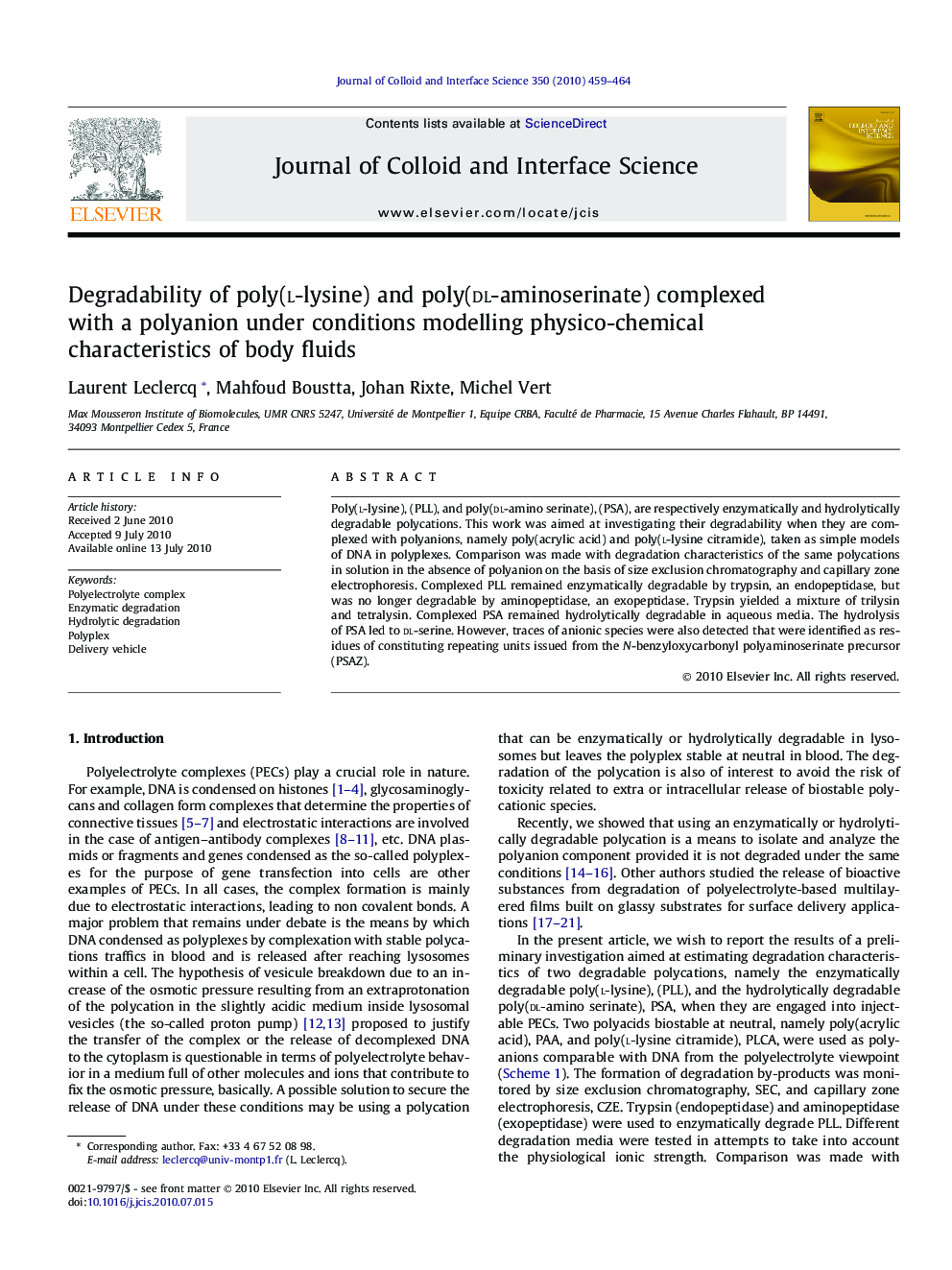| کد مقاله | کد نشریه | سال انتشار | مقاله انگلیسی | نسخه تمام متن |
|---|---|---|---|---|
| 609142 | 1454609 | 2010 | 6 صفحه PDF | دانلود رایگان |

Poly(l-lysine), (PLL), and poly(dl-amino serinate), (PSA), are respectively enzymatically and hydrolytically degradable polycations. This work was aimed at investigating their degradability when they are complexed with polyanions, namely poly(acrylic acid) and poly(l-lysine citramide), taken as simple models of DNA in polyplexes. Comparison was made with degradation characteristics of the same polycations in solution in the absence of polyanion on the basis of size exclusion chromatography and capillary zone electrophoresis. Complexed PLL remained enzymatically degradable by trypsin, an endopeptidase, but was no longer degradable by aminopeptidase, an exopeptidase. Trypsin yielded a mixture of trilysin and tetralysin. Complexed PSA remained hydrolytically degradable in aqueous media. The hydrolysis of PSA led to dl-serine. However, traces of anionic species were also detected that were identified as residues of constituting repeating units issued from the N-benzyloxycarbonyl polyaminoserinate precursor (PSAZ).
The enzymatic (trypsin) degradation of a polylysine engaged into insoluble complexes with polyacrylic acid or polylysine citramide was carried out successfully in PBS.Figure optionsDownload high-quality image (80 K)Download as PowerPoint slideResearch highlights
► Complexes from polyanions and degradable polycations degrade to release the polyanion.
► Trypsin can degrade poly(l-Lysine) complexed with polyanions in PBS.
► Aminopeptidase cannot degrade poly(l-Lysine) complexed with polyanions in PBS.
► The degradation products of poly(l-Lysine) by trypsin are trilysin and tetralysin.
► Solid complexes from poly(aminoserinate) and polyanions can be degraded in PBS.
Journal: Journal of Colloid and Interface Science - Volume 350, Issue 2, 15 October 2010, Pages 459–464